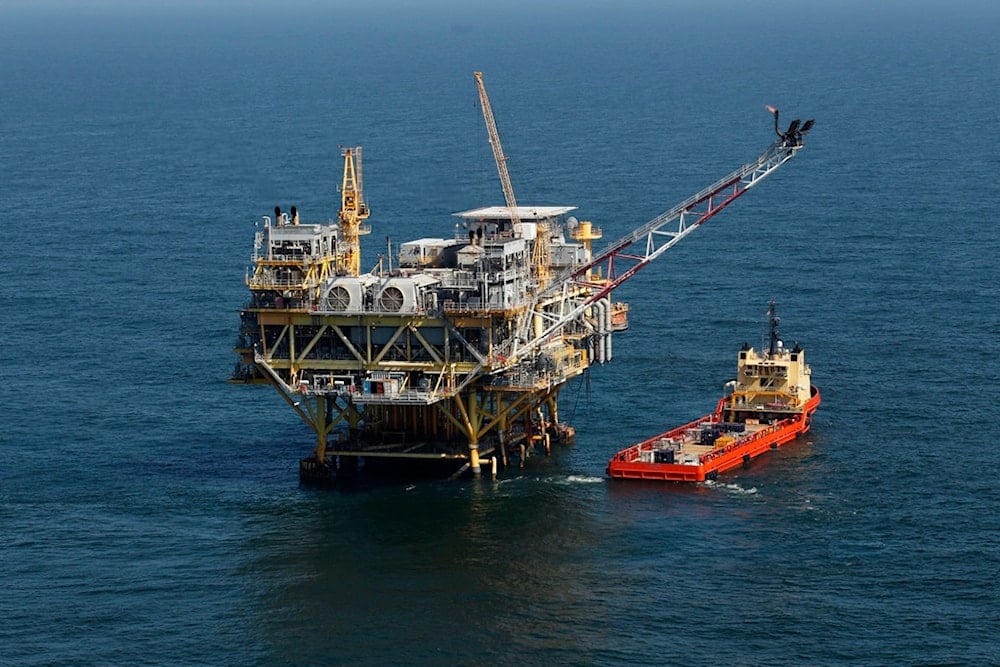Biden enacts major ban on offshore oil, gas drilling
The White House confirms the ban would be enacted under the Outer Continental Shelf Lands Act, a law granting presidents authority to restrict mineral leasing in federal waters.
-

This April 10, 2011, file photo, shows a rig and supply vessel in the Gulf of Mexico, off the coast of Louisiana. (AP)
US President Joe Biden has announced a sweeping ban on new offshore oil and gas development across the majority of US federal waters, a move aimed at addressing climate change and conserving natural resources. The decision, which affects 625 million acres of ocean, includes waters off the East and West coasts, the eastern Gulf of Mexico, and parts of the northern Bering Sea in Alaska.
The White House confirmed the ban would be enacted under the Outer Continental Shelf Lands Act, a law granting presidents authority to restrict mineral leasing in federal waters. Biden stated the decision aligns with his broader goal of conserving 30% of US lands and waters by 2030 and protecting public health and economic interests.
"My decision reflects what coastal communities, businesses, and beachgoers have known for a long time: that drilling off these coasts could cause irreversible damage to places we hold dear and is unnecessary to meet our nation's energy needs," Biden said. "It is not worth the risks."
He cited the 2010 Deepwater Horizon disaster in the Gulf of Mexico as an example of the dangers associated with offshore drilling, emphasizing that the risks outweigh the low potential for energy production in the banned areas.
Resistance from incoming administration
The announcement comes as President-elect Donald Trump has promised to roll back Biden's climate and conservation measures. During his term, Biden limited oil and gas leasing on federal lands and waters, a policy that sparked backlash from energy-producing states and companies.
However, legal obstacles may complicate efforts to reverse the ban. A 2019 court ruling determined that the Outer Continental Shelf Lands Act does not permit presidents to overturn previous leasing restrictions. The ruling came after Trump attempted to undo Arctic and Atlantic Ocean protections established by former President Barack Obama. Interestingly, Trump himself used the same law to prohibit drilling in the eastern Gulf of Mexico through 2032—an area now also protected by Biden's order.
Karoline Leavitt, a spokesperson for Trump's transition team, criticized the move on X, calling it "disgraceful" and reaffirming Trump's commitment to increasing domestic drilling. Specific plans to address the ban were not provided.
Read more: Trump tells EU to buy US oil, gas or face tariffs: Financial Times
The oil and gas industry also condemned the decision, warning it could undermine US energy security. Mike Sommers, the president of the American Petroleum Institute, urged lawmakers to intervene. "We urge policymakers to use every tool at their disposal to reverse this politically motivated decision and restore a pro-American energy approach to federal leasing," Sommers said.
Applause from Environmental Groups
Environmental advocates welcomed the ban as a critical step toward protecting marine ecosystems and coastal economies. Oceana, an organization focused on ocean conservation, celebrated the move as a win for clean coastlines and fisheries.
"Our treasured coastal communities are now safeguarded for future generations," said Joseph Gordon, Oceana's campaign director.
#BREAKING: Today, President Biden protected the United States' coasts, communities, and wildlife by safeguarding the East Coast, West Coast, and eastern Gulf of Mexico from offshore drilling. Thank you @POTUS!
— Oceana (@oceana) January 6, 2025
Read more 👉 https://t.co/l8bbKwFFoF #ProtectOurCoast pic.twitter.com/oaSlUCUuN1

 3 Min Read
3 Min Read








